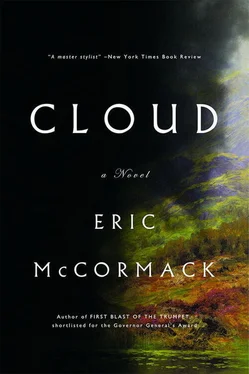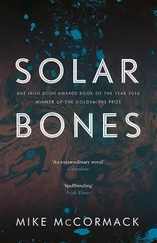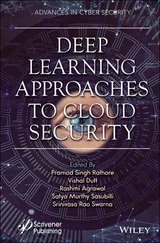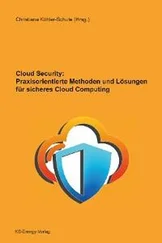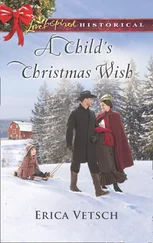In the instance of husband-murder, dissection after hanging or public gibbeting were the most common sentences imposed upon such wives. The Chief Justice averred that the sight of ravens feeding upon a gibbeted corpse in the Grassmarket was not easily forgotten by the populace. He regretted the diminishment of Scottish law
through the subsequent abolition of such penalties by the Parliament in London in the Act of 1834.
Justice Alexander Weir now spoke. He adverted to the recent trial of Isabel Macbane and Robert Leanie over which he had presided. He revealed that in the women’s cell of the Calton Hill prison on the day before her removal to the place of execution, Isabel Macbane discovered to him, in the presence of his secretary, the reasons and manner of her actions towards her husband, the cruelly murdered Revon Kenelm Macbane. For accuracy, Justice Weir read from his secretary’s transcription as follows:
JUSTICE WEIR:
Why did you request this interview?
ISABEL MACBANE:
Because my death is near, I wish the full truth to be known.
JUSTICE WEIR:
Proceed.
ISABEL MACBANE
: My marriage to Rev Macbane was arranged through my father by means of a dowry. But Macbane was not a good husband to me. Within a year of our marriage, when he came home from work, he spent his time at his writing table. All the energy left in him was drained into his pen. Though he shared the same bed with me, he was infertile in it and I was thereby doomed never to bear offspring. But he was fertile enough with the other woman.
JUSTICE WEIR:
To whom do you refer?
ISABEL MACBANE:
The woman was she who tends the Kilcorran subscription library where he went many times. She could read his own writings. I did not learn to
read for as a child I must tend the pigs on the farm of my father, so Rev Macbane had contempt for me.
JUSTICE WEIR:
Was there adultery between your husband and this woman?
ISABEL MACBANE:
Yes. My brother Robert Leanie at my request spied on them and witnessed the adultery through the window of her own dwelling. That woman was already much swollen in the belly as my brother did see with his own eyes. When Rev Macbane came home from her, we seized his arms at his back and fastened them with a rope. He admitted the adultery and I told him he would die for it as he only married me for the dowry for the printing of his books and that he planted his seeds elsewhere. He said he might have loved me if I was able to read. I promised him that I would burn every last one of his obsidian clouds and all his papers. He begged me to spare them for they were innocent of any offence.
JUSTICE WEIR:
What are these obsidian clouds to which you refer?
ISABEL MACBANE:
They were his books of which he had printed fifty copies by the use of my dowry.
JUSTICE WEIR
: Describe the murder and the mutilation of the body.
ISABEL MACBANE:
I brought the carving knife from the kitchen and gave the knife to my brother who stabbed Rev Macbane through the ribs five times, once for each year of our marriage. He was still alive and begged to be spared. From his desk I took his jar of ink and his pen with the steel nib. My brother held him by the jaw and I poured the ink down his throat and with the pen I cut open his throat like a Spring hog. Then the ink mixed
with his blood spilled out of the cut and down his belly. I watched him till the light went out in his eyes. Then we gathered all his obsidian clouds and the other papers from his desk and threw them into the fireplace till they were burnt, so that nothing of them remained but ashes.
JUSTICE WEIR:
Have you remorse for your crime?
ISABEL MACBANE:
Only that my brother is now to be hanged because of me. He would not have killed Rev Macbane, for he acted only at my bidding.
The transcription having been read, Justice Alexander Weir declared to the Chief Justice and all those at the Annual Assembly of Justices that after the interview with Isabel Macbane, he thought much about the aptness of her sentence. He believed it was certainly commendable in her that she should have murdered Revon Macbane, her husband, outright by means of force, rather than by the act of poisoning him through stealth. But in Justice Weir’s opinion, illiterate though the woman was, she understood well that exterminating the memory of Revon Macbane by the burning of his books and papers was the same as to kill him twice, and so a double crime. Upon this consideration, Justice Weir argued that in such cases the double penalty of gibbeting, in addition to mere hanging, ought to be restored as in the time before the Act of 1834.
The Chief Justice concurred with these remarks and proposed a motion: “That the new leniency in sentencing in capital cases is most regrettable and should be reconsidered for taking insufficient account of the deterrence effect generations of our predecessors on the Scottish Bench deemed necessary.”
Motion seconded, by Justice Alexander Weir. Motion approved,
nem. con
., by the Assembly of Justices.
I had to go over the photocopied pages more than once. I could hardly believe what I’d just read. The language in them was a little old-fashioned and sometimes hard to follow because of the legal terms, but the meaning was clear enough. I was in a state of shock as I returned to Soulis’s letter.
I know you’ll be as delighted as I am at the discovery of this documentary evidence, brief though it may be. Moments such as these are what a researcher lives for.
It had never for a moment entered our heads that “Rev” was an abbreviation of the given name, Revon, and not of “Reverend.” We’d quite naturally assumed the writer was a clergyman. We’ve since discovered that Revon is in fact an old name (Middle Scots for “raven”), and is still used in some families in the Uplands, though infrequently nowadays.
Macbane himself may have actually hoped this confusion with the religious designation would help convince some publisher to take a chance on the manuscript. If so, the ploy was quite understandable. Hard though it may be for us to believe, at that time, even the most insipid books by a clergyman were guaranteed a wide readership.
But if such a ruse was intended by Macbane, it clearly didn’t help him get a publisher. We now know from no less reliable a source than the Scottish Law Reporter that he had to pay out of his own pocket — or, more accurately, out of his wife’s dowry — for the private printing of fifty copies of The Obsidian Cloud in large quarto format by The Old Ayr Press. The firm probably gave him a bargain price; as I suggested to you when we met, they’d have been only too happy to use up the remnants of some old reams of paper. Macbane would have brought the fifty copies home for storage.
Obviously not every single copy was consumed in the fire set by his wife: you, for instance, found one in Mexico — more on that in a moment! — of all places. So perhaps Macbane had already managed to place a few with booksellers, or given some away as gifts. Perhaps he’d even persuaded the local subscription library to take one — after all, he seemed to have had more than the usual lender’s privileges there.
Indeed that rather cynical suspicion led us down another track: looking for the identity of the woman at the library with whom Macbane had the adulterous relationship. We knew there were bound to be documents somewhere about Kilcorran’s subscription library. Even if we could find nothing about the woman, it would be fascinating if we could at least discover what kinds of books Macbane read.
These subscription libraries, by the way, were very common all over Britain. Patrons had to pay a small fee (a “subscription”) for the privilege of borrowing books.
Читать дальше
